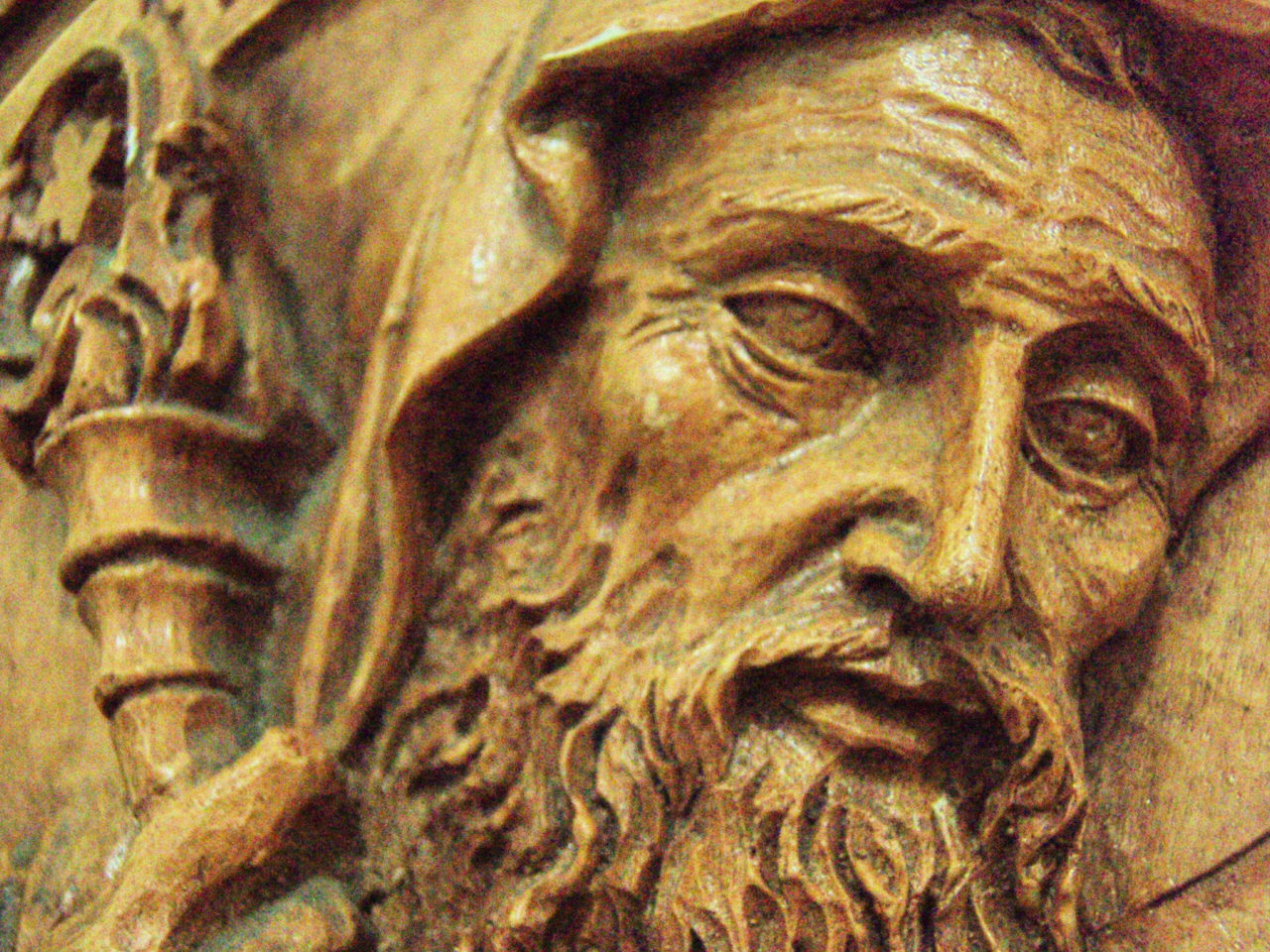Visiting a Fellow Human at the Benedictine Monastery
Nearly 15 years ago I watched a line of young men file out of a Buddhist temple near the sacred Chinese mountain of Putuo
 Nearly 15 years ago I watched a line of young men file out of a Buddhist temple near the sacred Chinese mountain of Putuo. Then, as now, I had a naive belief in the power of spiritual exercises, if not the spirits to which they are often dedicated. Memorization, meditation, asceticism, devotion, submission—these are the tools with which we sculpt virtue out of the self’s raw material, and there in front of me were masters of the craft, clad in saffron robes, their shaved heads surely full of hard-won wisdom, their hearts pure (or at least purer than mine).
Nearly 15 years ago I watched a line of young men file out of a Buddhist temple near the sacred Chinese mountain of Putuo. Then, as now, I had a naive belief in the power of spiritual exercises, if not the spirits to which they are often dedicated. Memorization, meditation, asceticism, devotion, submission—these are the tools with which we sculpt virtue out of the self’s raw material, and there in front of me were masters of the craft, clad in saffron robes, their shaved heads surely full of hard-won wisdom, their hearts pure (or at least purer than mine).
So it came as a shock to me and the other assembled tourists when one of the men withdrew a phone from his robe and launched into angry conversation. It was everything I thought he wouldn’t need: instant gratification, distance from the moment, emotional expression. And so I reacted as anyone does when their beliefs are challenged, and filed the incident away as an exception, my reflexive judgment as evidence of personal spiritual shortcomings.
I had occasion to reflect on that memory on a recent visit to a Benedictine monastery. The visit was part of research for a piece I wrote about The Benedict Option, a bestseller by the conservative author Rod Dreher (see Resources below). His book horrified me—it was what I called “spiritual pornography”—and I wanted to redeem the real Benedict Option by swapping its supposed exegete for a genuine practitioner.
The elderly priest sat me down in his office. “How can I help you?” he asked.
How could he help me? I didn’t know, exactly. With a conversation that humbled me, that showed to this nonbeliever the power of a faith diligently practiced to make you wise. Thomas Merton’s Seeds of Contemplation performed in the flesh.
We spoke for over an hour. At first it was normal introductory small talk: his health, his past as a young Navy recruit, his long-standing desire eventually to become a monk. Then the topic turned to politics. He complained that a nearby Benedictine military school was being forced by the government to teach the acceptability of homosexuality or give up ROTC affiliation.
“So they gave it up,” he told me sadly. “They pay for their own uniforms now. See, it’s what Dreher talks about in his book. Homosexuality, transsexualism, everyone has to agree with that stuff.”
We never once spoke about God, wisdom, virtue, or anything like that. It was a perfectly ordinary conversation with a kindly older man, whose faith and political orientation differed from mine, like many such conversations that I’ve had. He did not have a unique perspective on those issues. His countenance did not radiate otherworldly wisdom. Decades of spiritual exercises left no discernible mark.
At first I was disappointed. I had hoped that somehow this monk would show me a path through the bleak political landscape of our country, and, more importantly, embody a transcendent way of being that crosscut my own petty, worldly concerns. I had hoped he would teach me the true Benedict Option.
It was only later, on the drive home, that I fully realized what he had taught me, and how the conversation really had succeeded in humbling me. Spiritual exercises do not dissolve concerns about politics, or health. They do not make you a more valuable human being, as I had once thought. In fact, he had told me as much. When I asked him directly about the effects of monasticism, all he said was that it suited him. For others, a different path was best.
In that answer—the only explicit reference to religious practice—he was embodying a virtue that I did not possess: humility about the possibility that a specific set of practices can make you better than others. “A more valuable human being”—what a thought to think! And of course, there was the deeper mistake built into my own judgment of cell phones, and emotional expression, and being worried about your health. Do sages never anger? Do they have no prescriptions to fill, no families to call?
I had made a mistake—with him, with the Buddhist monks in China, with my whole outlook on what it is to cultivate wisdom. I know this now; my faith is shaken. But I do not want it restored. I want to keep it unsteady, so that in the future, I do not seek out those who have found a better path, but instead remind myself that we are all wanderers on a map with infinite paths, the relative virtues of which are difficult to judge, especially—to borrow from a faith not my own—for sinners in need of grace.
Resources
- Dreher, Rod. The Benedict Option. Sentinel, 2017.
- Levinovitz, Alan. “The Awful Pleasures of Spiritual Pornography.” Los Angeles Review of Books. May 29, 2017.
SIGHTINGS is edited by Brett Colasacco (AB’07, MDiv’10), a PhD candidate in Religion, Literature, and Visual Culture at the University of Chicago Divinity School. Sign up here to receive SIGHTINGS via email. Y

